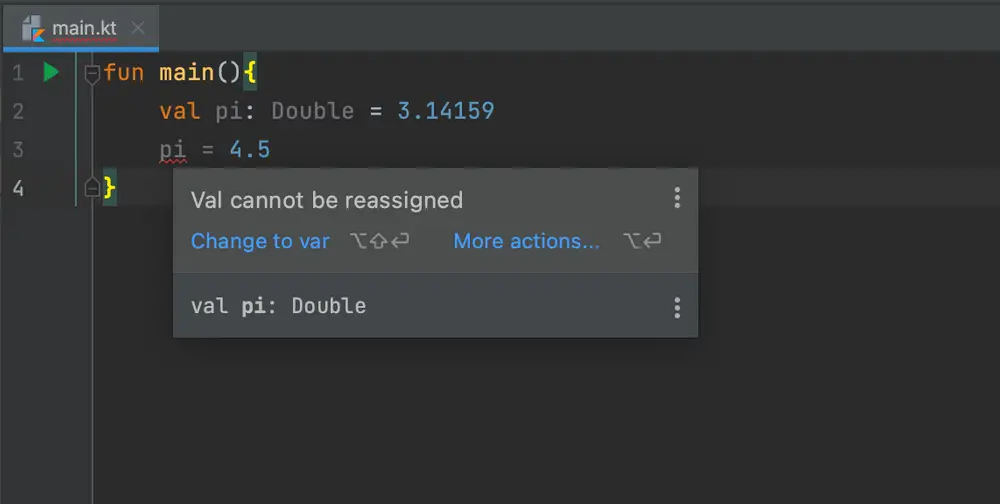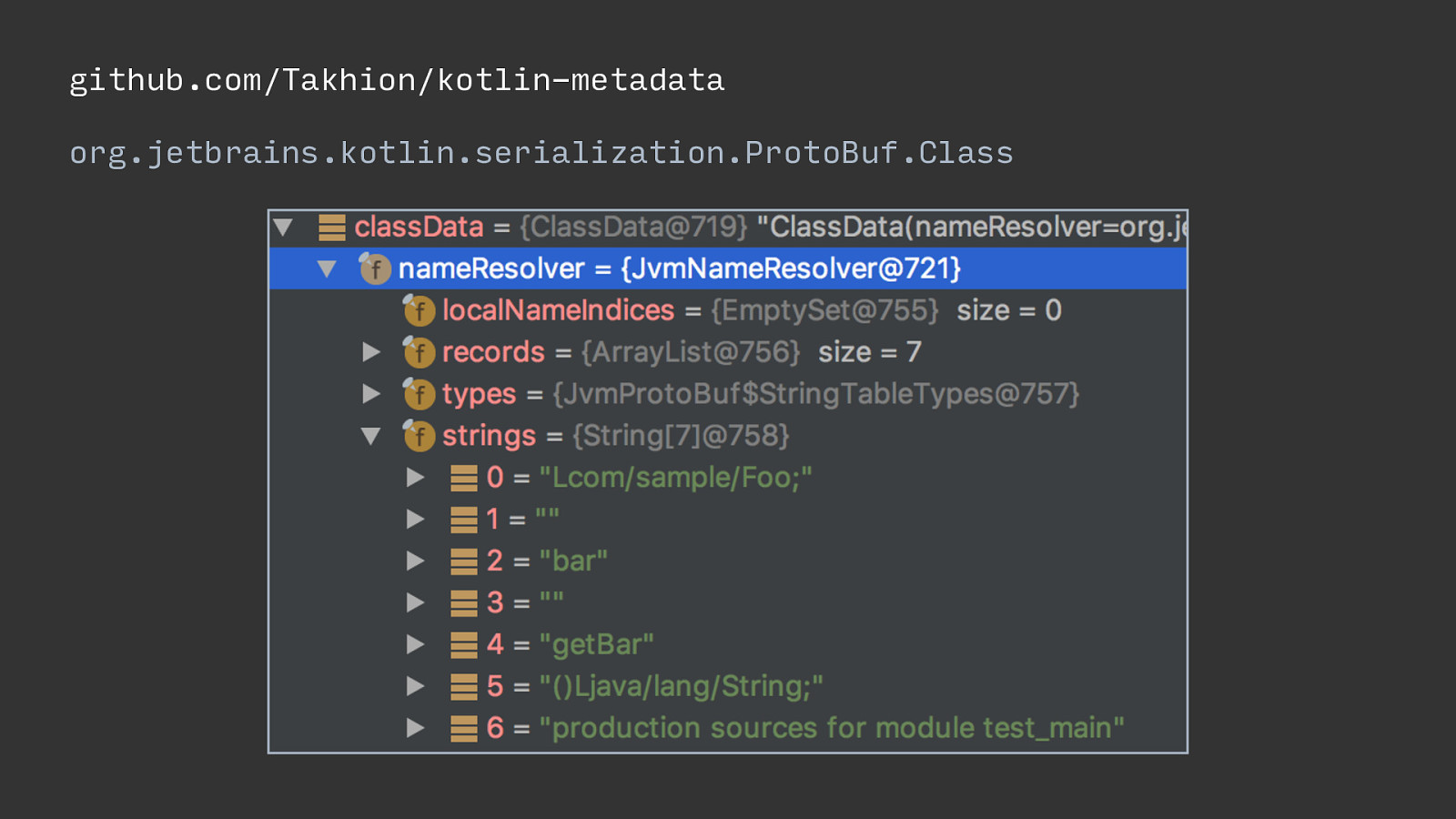
To define a nullable variable, we must append a question mark(?) to the type declaration: fun main() ") // Throws NullPointerExceptionĮxception in thread "main" kotlin. Here, by default compiler considers name variable as a Non-Null reference. Output: Error:(6, 27) Kotlin: Null can not be a value of a non-null type String Var name:String = null // COMPILATION ERROR This makes applications safer through nullability declarations and expressing value or no value semantics without paying the cost of wrappers, such as Optional. We cannot assign a null value to a variable because it’ll throw a compilation error( NPE): One of Kotlin’s key features is null-safety, which cleanly deals with null values at compile time rather than bumping into the famous NullPointerException at runtime.


In Kotlin, all variables are non-nullable by default. Non-Null Reference: These references can’t hold null values.Variable that cannot be null var str: String K. As such I would not like to have the existing feature be changed to this. For example, a non-null string will be written String and a nullable one will be String. An implicit check at runtime needs to be added. Altering the behavior of default arguments regarding null values would mean that this is not anymore a compile-time feature. Nullable Reference: These references can hold null values. It is all checked and resolved by the compiler.In Kotlin, the type system differentiates between two types of references: Kotlin’s comes with null safety to eliminate NullPointerException’s from our code. ("Student name (Uppercase): " + name.toUpperCase()) Įxception in thread "main" Let’s understand with simple example in Java where NullPointerException occurs: In Java this would be the equivalent of a NullPointerException or NPE. One of the most common pitfalls in many programming languages, including Java, is that accessing a member of a null reference will result in a null reference exception. Here, the idea is to return an empty list if the given list is null and. Of course, we can add the open keyword to classes and methods that we want to mock. Most JVM mock libraries have problems with mocking or stubbing final classes. While this helps us write immutable code, it also causes some problems during testing. Using orEmpty () with isEmpty () function. In Kotlin, all classes and methods are final.

From Kotlin 1.3 onwards, the recommended approach is to use the isNullOrEmpty () function to check for an empty or null list in Kotlin. I’d like to suggest a small change to how class constructors work, particularly for data classes.Null Safety in Kotlin is to eliminate the risk of occurrence of NullPointerException from code. A list is empty if and only if it contains no elements. Else if the variable is set from outside the class, use lateinit. I am in the process of converting a large Java code base to Kotlin, and I’ve run into an issue that makes this transition less than smooth. If it’s normal for the type to be null during the logic, use nullable.


 0 kommentar(er)
0 kommentar(er)
